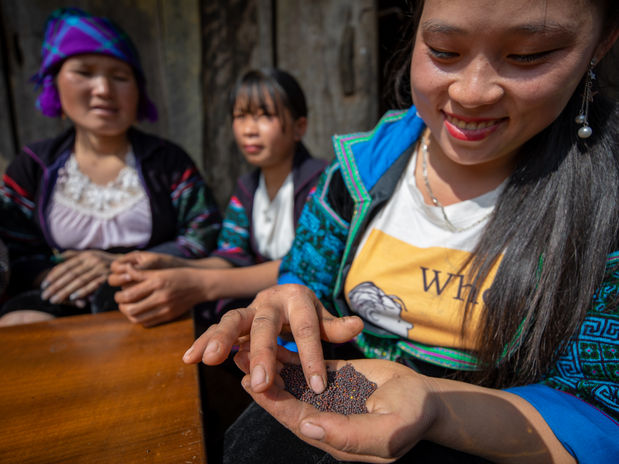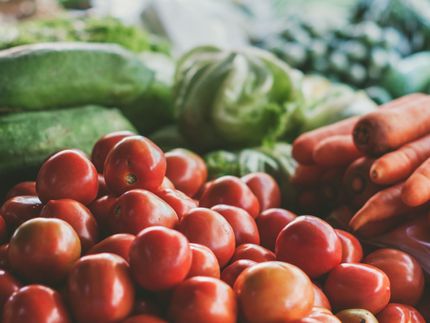How do quality seed systems impact food and nutrition security?
Food and nutrition security is a key development indicator for children’s health. However, decades of global efforts to combat hunger are proving to be insufficient in the face of growing challenges (i.e., conflict, climate extremes, and economic shocks) that have been further aggravated by the COVID-19 pandemic. Currently, about 1 in 10 people face hunger and 2.37 billion people face moderate or severe food insecurity, with the majority in Asia and Africa.

Hmong farmers differentiate between different quality seeds in Vietnam
Alliance of Bioversity and CIAT / Trong Chinh
Seed systems are a collection of various interacting actors and tools like technologies, formal and informal groups, market and non-market institutions that allow the use and exchange of seeds. Unfortunately, in low and middle-income countries where smallholder farms are most vulnerable to shocks and stresses and where there is widespread malnutrition, timely and sufficient access to quality and preferred seeds remains challenging. To address this issue, seed system interventions are being developed and implemented, including breeding for improved varieties, capacity strengthening across the seed value chains, and enhancing access to finance to support farmer access to seeds.
In a review published in the journal Global Food Security, researchers led by the Alliance of Bioversity and CIAT mapped evidence of the impact of seed system-oriented interventions on nutrition, identifying themes from 43 studies as direct seed supply, improving seed access, and adopting improved seed. The study provides insight for the pathways to improve nutrition from the perspective of access to and use of quality seeds. There is vast potential in strengthening seed system research in the context of improving diets, nutrition, and food security as part of agriculture and food system resilience.
The results showed more studies with positive than those with mixed or negative impacts on food security, household resilience, dietary quality and diversity, and nutrition status. Studies with positive impact emphasized the importance of seed system- and farmer context- specific approaches and use of multi-component interventions.
The review also found that most of the studies on seed and seed systems focused on crop productivity, use of improved seed, and increasing seed access, while only a few looked into traditional and indigenous seeds, and the sustainable integration of seed to existing seed systems. Despite global movements to diet diversity, most interventions were focused on staple foods such as rice and corn. In addition, impact on nutrition was more positive among less vulnerable farmers, those with higher socio-economic status or resource access, and for men compared to women.
Additional factors that contributed to positive impacts on nutrition, food security, and household resilience included inclusion of gender-sensitive approaches, participatory approaches, capacity building, and explicit nutrition outcomes. “These are some of the factors that the Alliance is capitalizing on as it develops and studies nutrition-sensitive seed systems and the complexities along the pathways from seeds to nutrition,” says Deborah Nabuuma, Associate Scientist at the Alliance of Bioversity and CIAT and study lead author.
Urgent need for more “systems” studies across our food systems
Much like any systems study, this review highlights the importance of looking across the food system from start to finish: From drivers to consumers and from production to diets. Systems approaches must understand how these complex arrangements fit together in practice.
The Alliance continues to bring together different knowledge systems, research methodologies, theoretical frameworks, and stakeholders in collaborative, integrated systems research to enhance access to and consumption of healthy and sustainable diets.




























































